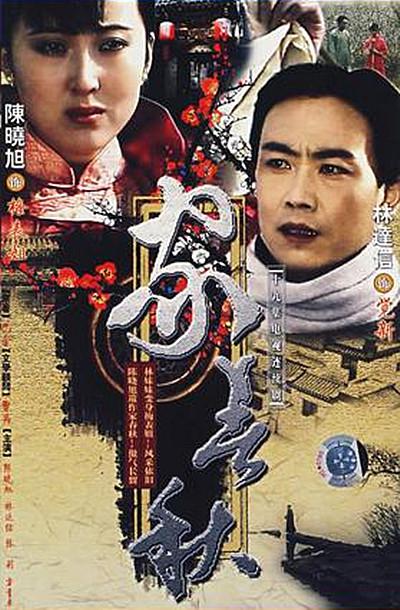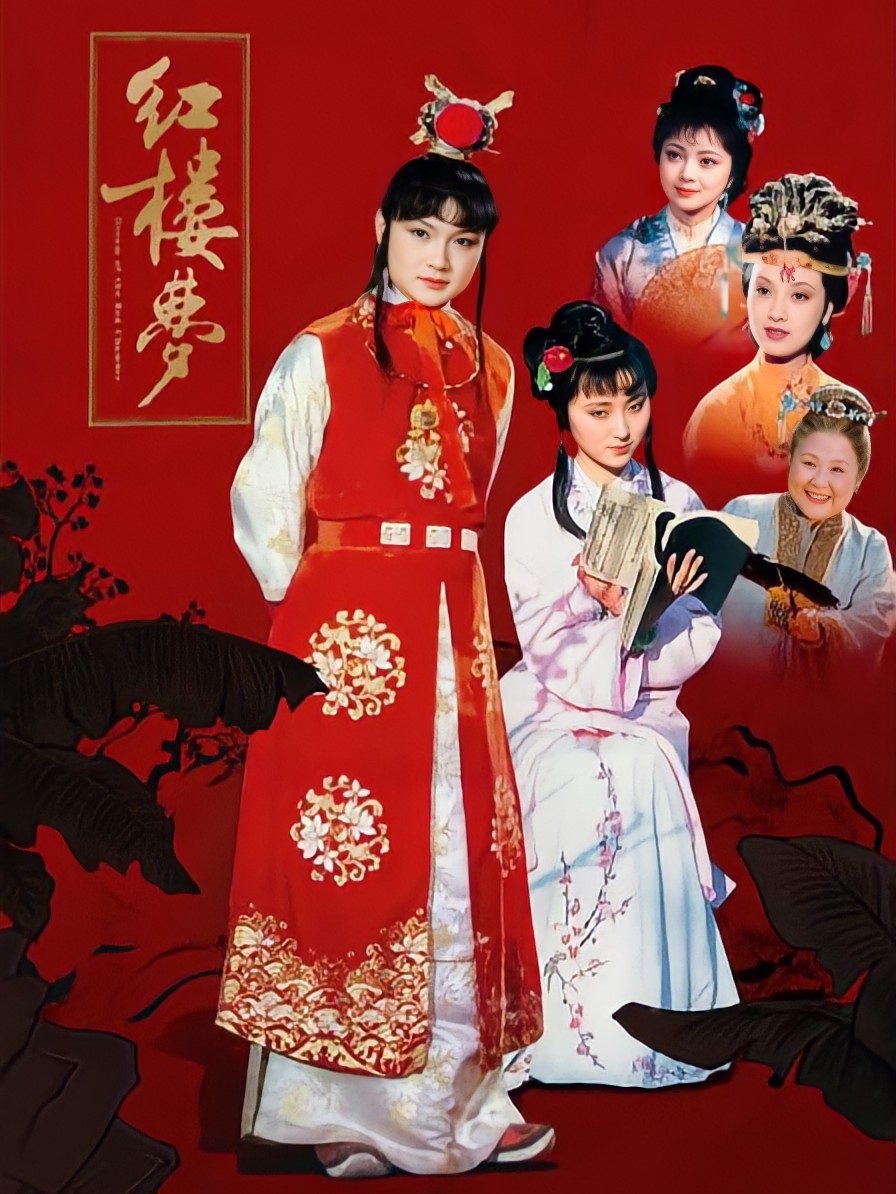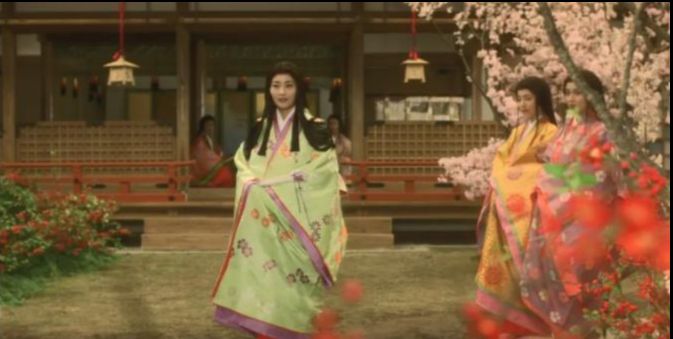
The opening poem of "Pingjia Story" -only the bells of the gardens are bell, telling the world's impermanence; The extravagance and extravagance are not long, just like a dream of spring night; strong Liang's domineering eventually extinguished, as if in the wind.
Lao Pan: In "The Story of Genji", there are people who cannot communicate with people and cannot understand. The inner loneliness and fate. Later, I read the family novel "Snow Snow" of Tanasaki Hunichiro. The protagonist and the old three sisters were spoiled by two sisters, which reasoned to be surrounded by affection. But she still has a sense of loneliness that she can't overcome. Some family novels I have contacted in Chinese literature such as "Dream of Red Mansions", "Jinghua Yanyun", "Home", "Spring", "Autumn", etc. I no matter how dark it writes, I have deeply read it. In the impression, the big family in Chinese society is very depressed, but at the same time, at the same time, when the family is lively, the father is filial piety in the family, and the husband singing women also have their own side. Regardless of the later results, it is better to destroy or decline. When a large family cooks oil and Zhong Ming Ding, everyone who lives in it has a sense of belonging in it.
Purple Statue
The pain of characters in Chinese family novels is often because they are not recognized by their family. However, in family novels such as "Genji Story" and "Snow Snow", you can't see the rendering of this great sense of belonging. In other words, although it writes a lot of characters, the relationship between these characters can also be very intimate, including my husband, she is my wife, her is my daughter, I am her Father -In "The Story of Genji", I can't see the descriptions of the heavy ink in the family novels such as "Dream of Red Mansions", "Home", "Spring", "Autumn", and "Jinghua Yan Yun", and Essence Although these characters live in the interpersonal network of the big family, everyone has a "cocoon" wrapped in their respective small worlds at the same time, trapped them inside. This is what I think Japanese literature. As far as these family novels are concerned, it has this big difference. It is also a family novel, but I can't feel the sense of belonging of everyone in the family in the family. They did not have to incorporate themselves into the needs of a family's sense of belonging, and of course they would not be sad for this. In us, this sense of belonging is generally beautiful, and it is the warmest thing in life. People are often anxious and lost because they are not recognized by their elders and siblings of their family. As far as my personal vision is, the Japanese written by Japanese novelists have a pessimistic attitude towards themselves, but they did not cry for tears because of this.

The TV series "Home Spring and Autumn" (1987) Li Li, the original adaptation of Bajin
Ren Zhi: Yes, they accepted their fate frankly.
Lao Pan; however, there is one thing in which it is different from Chinese literature. When there is an individual, he and another person can not be his closest person, electric light and fire, produce a certain tacit understanding. This tacit understand He has been playing for a long time. At this time, he will blurt out, like a word or two of Zen in China. These two sentences will also be called ancient poems in Japan.
Ren Zhi: In fact, it is a sentence. Japanese literature, especially Japanese classical literature pursuing the feeling of instantaneous and disappearing, it knows calmly, everything has a success or failure. This is related to the unique "hero view" of the Japanese. "The Romance of the Three Kingdoms" has a great impact on Japan. Large -scale and magnificent war scenes such as "The Three Kingdoms" are unimaginable. Their land area is small and square. In the process of accepting the "Three Kingdoms", the difference between the Chinese is that Cao Cao, Liu Bei and Sun Quan are all heroes in their opinion. Unlike we support one party, oppose the other side, this is the same, choose the side station. They believe that the heroic heroes are heroes, and the heroes who fail are also heroes. The familiar Yokoyama Jinger also composed the Chinese style song "The Hero" for the 7 -hour cartoon film "Three Kingdoms". Xixiang Longsheng, early, was one of the "Three Jay of the Restoration", and ran for "respecting the king Yiyi". Due to the differences between the internal affairs of Dajiu Polytong and others, it was pushed by the old Satsuma clan as the leader and launched an armed rebellion. It was called the Southwest War in history. The soldiers were defeated and died in Kagoshima City -he was also the hero of the failure in the minds of the Japanese.
Old Pan: The characters in the Japanese family novels accepted the things like "destiny" frankly, and then enjoyed some of the small joy caused by natural things and the four seasons reincarnation in the frankness. I rarely see this in Chinese family novels such as "Dream of Red Mansions".

Ren Zhi: What you are talking about is actually a national characteristic, which has the elements of Zen, and there are Japanese ethnic elements. Just like the samurai road, the samurai particularly admired Miyamoto Musashi. His ambition was to duel with Miyamoto Musashi. When he practiced for ten years, he went to Miyamoto Musashi to duel. Until the Miyamoto Musashi point, he failed. After failure, he committed suicide immediately. This is incomprehensible in China. According to the Japanese understanding, I have made a duel with a master. My life value has been reflected. I died in the brightest moment of cherry blossoms. It was the most beautiful and completed my own value. Instant beauty, related to cherry blossoms, related to samurai, there are such aesthetics, saying that it is extreme, extreme, it is like drilling an endless tunnel. In the concept of death, it believes that death is the continuation of life, and it faces death and disaster.
Lao Pan: Sometimes in the eyes of Japanese, he suicide is the highest form of narcissism. Suicide is not only a negation of life, but also an affirmation. That is to say, suicide is determined by my free will, not forced by helplessness, not forced by external pressure, it is a manifestation of free will. In the process, while destruction, he thought he had entered a certain state he created. There is a concept of "Guisheng" in Chinese Taoism, and the concept of "Guisheng" comes from Zhuangzi. It is flourishing during the Wei, Jin, Northern and Southern Dynasties. After the annihilation of the Han Empire, before the establishment of the Sui Empire, the three or four hundred years in history called the "Five Hu Chaos". Frequent changes to the dynasty, almost everyone lives a day of being in good night. It is precisely at that time, you think about the period of turmoil in the Wei, Jin and Northern and Southern Dynasties, especially within the scope of the Han regime. Clothes. According to the present statement, those men are a bit "mother -in -law". But their people are still keen on tasting characters, "Zi Jiancai, Pan An's appearance." Why is he so obsessed with the beauty of his body, that is to say, he looks at his body, even if he is a man, just like a girl in the mirror Gu Ying, he feels that this skin is worth cherishing (the Japanese people (Japanese people There are many records in "The New Words of the World").
Do you think the idea of "Guisheng" will have some kind of response in Japan? Even pushing to the opposite side, he was just a pity for this skin. The moment he destroyed himself and made this pair of skin live forever when he was young, he always lived in the spring of his life. He did not enter the summer. ,fall and winter. What he left to everyone is the image of a young "me". Is there a causal relationship with the "gorgeous" and "silence" in Japan? I have not been involved in the inheritance of these thoughts. I don’t know if you have been in contact with it?
